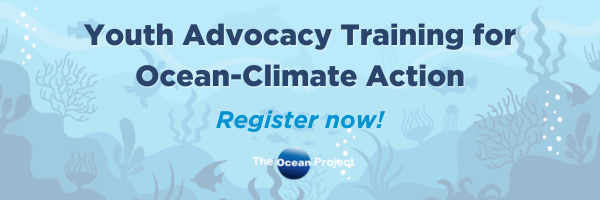
Clearly those of us working to protect and conserve our world’s ocean and climate need to do a much better job of educating and communicating with visitors to our facilities and the public, especially during these hard economic times. The data from recent polling – including our recent comprehensive survey which is still being analyzed– shows that we continue to face some large challenges in effectively communicating for conservation.Anyway, as far as the latest polling on the issue of climate change, according to Gallup’s annual March survey on the environment, a majority of Americans largely believes global warming is real and that the seriousness of the issue is either correctly portrayed in the news or underestimated, but a record-high 41% now say it is exaggerated by the media. While still only a snapshot in time, this represents the highest level of public skepticism about mainstream reporting on global warming since Gallup’s trend on this measure began in 1997. Furthermore, the poll also shows that Americans are “a bit less concerned about the seriousness of global warming” with only 34% of Americans saying they worry “a great deal” about the problem.
Given the fact that many scientists believe climate change to be a more serious threat than some in the media report, and there continues to be increasingly serious news such as recent reports from experts at the International Scientific Congress on Climate Change, it is somewhat surprising and discouraging to learn that more Americans feel as though global warming is actually exaggerated. Of course, some believe this to be a zero sum game; with the economy and jobs and home mortgages increasingly taking up people’s “concern time” then other issues may not seem as important. Moreover, public opinion on climate change, or any issue, can be wrong. But for those of us trying to communicate with the public it helps to know people’s perceptions on issues, how they get their information, and why people think, act, or behave as they do.
Certainly, ZAMs (zoos, aquariums, and museums) and others working to create a more sustainable society and a healthier ocean planet need not feel an obligation to provide arguments of two hypothetical sides on a serious issue such as climate change where the scientific evidence is overwhelming. We do, however, have an obligation with such an overwhelmingly important issue to take action in as effective a means as possible to make people aware of the issues, and do so in an empowering way so that people can help with the solutions to climate change, and creating a healthy ocean. Together, as a network of organizations, and many concerned individuals, we can help achieve the societal transformation that we need to ensure that our ocean and our climate are as healthy as possible for future generations.
Getting back to the Gallup survey, all of the past year’s uptick in cynicism about the seriousness of global warming coverage occurred among Americans 30 and older. The views of 18- to 29-year-olds, the age group generally most concerned about global warming and most likely to say the problem is underestimated, didn’t change. Based on our preliminary analysis of our own survey data, the teens and ‘tweens may be even more concerned.
The 2009 Gallup Environment survey also measured public concern about eight specific environmental issues. Not only does global warming rank last on the basis of the total percentage concerned either a great deal or a fair amount, but it is the only issue for which public concern dropped significantly in the past year. (Notably, the ocean was not even considered among the top eight specific issues to poll on, despite the many issues threatening its health and critical connections to humans; we will push to change this oversight with Gallup.) According to Gallup’s own analysis, public concern about the environment often drops at times when other issues such as a major economic downturn absorb people’s attention, but the fact that concern about global warming dropped relative to the eight other measures suggests that “something unique may be happening with this issue.”
While Americans by far believe that they will see the effects of global warming in their lifetimes, when asked, “Do you think that global warming will pose a serious threat to you or your way of life in your lifetime?” only 38% of Americans answered yes. A full 60% of Americans do not believe that global warming will pose a serious threat to themselves or their way of life.
There’s a real challenge. Let’s get back to work at becoming more effective communicators for conservation!



